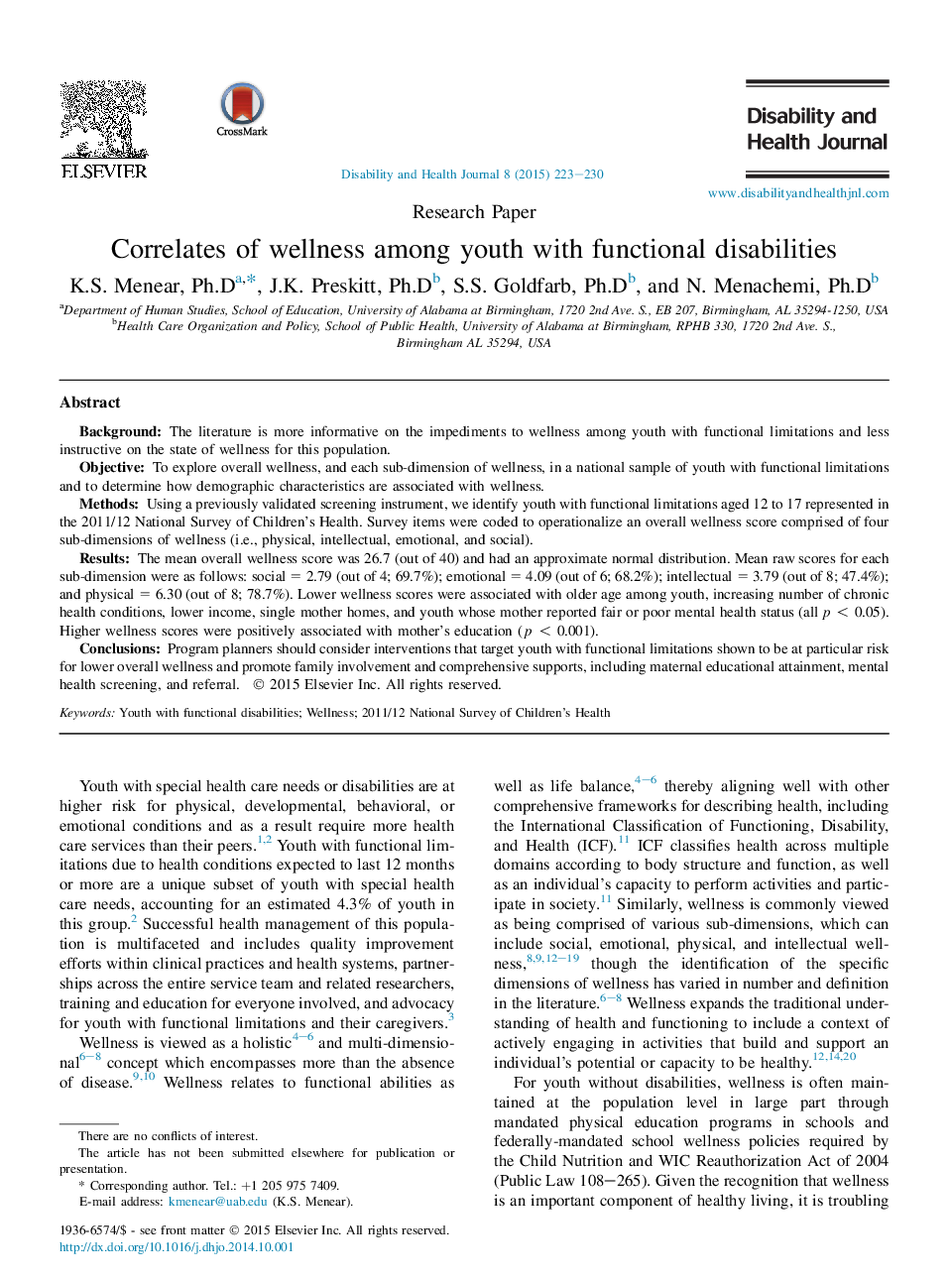| کد مقاله | کد نشریه | سال انتشار | مقاله انگلیسی | نسخه تمام متن |
|---|---|---|---|---|
| 4197158 | 1278903 | 2015 | 8 صفحه PDF | دانلود رایگان |
BackgroundThe literature is more informative on the impediments to wellness among youth with functional limitations and less instructive on the state of wellness for this population.ObjectiveTo explore overall wellness, and each sub-dimension of wellness, in a national sample of youth with functional limitations and to determine how demographic characteristics are associated with wellness.MethodsUsing a previously validated screening instrument, we identify youth with functional limitations aged 12 to 17 represented in the 2011/12 National Survey of Children's Health. Survey items were coded to operationalize an overall wellness score comprised of four sub-dimensions of wellness (i.e., physical, intellectual, emotional, and social).ResultsThe mean overall wellness score was 26.7 (out of 40) and had an approximate normal distribution. Mean raw scores for each sub-dimension were as follows: social = 2.79 (out of 4; 69.7%); emotional = 4.09 (out of 6; 68.2%); intellectual = 3.79 (out of 8; 47.4%); and physical = 6.30 (out of 8; 78.7%). Lower wellness scores were associated with older age among youth, increasing number of chronic health conditions, lower income, single mother homes, and youth whose mother reported fair or poor mental health status (all p < 0.05). Higher wellness scores were positively associated with mother's education (p < 0.001).ConclusionsProgram planners should consider interventions that target youth with functional limitations shown to be at particular risk for lower overall wellness and promote family involvement and comprehensive supports, including maternal educational attainment, mental health screening, and referral.
Journal: Disability and Health Journal - Volume 8, Issue 2, April 2015, Pages 223–230
